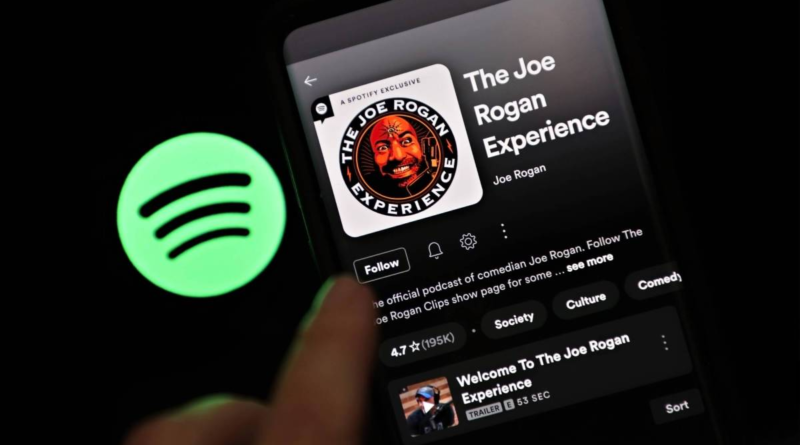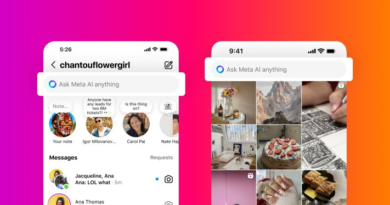Actually, it’s good for Spotify that Joe Rogan’s podcast is no longer exclusive
Spotify renewed its contract with podcaster Joe Rogan this weekend, but with a twist. After almost four years, “The Joe Rogan Experience” is no longer a Spotify-exclusive podcast.
This might seem like a concession on Spotify’s part, as exclusive deals have long been a part of the company’s strategy. Early on in Spotify’s quest to own podcasting, it acquired popular studios like Gimlet and Parcast. Over time, Spotify turned these studios’ shows into exclusives, so they were no longer available on any other app — but about four years later, that game plan is shifting. Now, Spotify may benefit more from selling ads on these shows than it would from cornering listeners into downloading Spotify.
According to a statement from the Gimlet and Parcast workers’ unions, this strategy to convert listeners from other podcast platforms never worked that well. Some shows lost more than three-quarters of their audiences after being converted to Spotify exclusives.
It makes sense that Spotify’s podcast strategy is changing, because it wasn’t working. The platform made several podcasting startup acquisitions worth hundreds of millions of dollars each, then invested in high-cost deals with big names Barack and Michelle Obama, and Meghan Markle and Prince Harry. The royal couple only made 12 episodes of one podcast, but they are rumored to have been paid over $20 million. These bad business decisions have frustrated podcasters, who watch as the company that was supposed to revolutionize podcasting leverages three rounds of layoffs in a year.
“The Joe Rogan Experience” is a unique part of Spotify’s portfolio, though (and that’s without even getting started on host’s repeated endorsement of harmful misinformation). In 2022, the show had around 11 million listeners per episode. Since coming to Spotify in 2020, Joe Rogan’s show has been the most-listened-to podcast on the platform every year. If exclusivity isn’t generating the returns Spotify hoped, then it makes sense to try a different approach.
“The real value of Spotify’s relationship with Joe Rogan is being his exclusive ad seller,” said Multitude Productions CEO Amanda McLoughlin, who manages ad sales for more than 25 podcasts. “Forcing companies that want to buy ads on the Joe Rogan show to do so through Spotify must be more profitable than forcing his listeners to use their app. I think they discovered that over the first deal term, and were willing to let platform exclusivity go in order to retain ad sales exclusivity,” she told TechCrunch.
Over the last five years, Spotify has made itself a one-stop shop for podcast production through acquisitions worth over $1 billion combined. Spotify owns the production process of making a podcast from start to finish — you can record, edit, distribute and monetize your podcast all through the technology that Spotify bought from Anchor, Megaphone and other companies. In the case of these blockbuster shows, Spotify’s invite-only automated ads program is particularly relevant, because it allows Spotify to take a huge cut of ad revenue.
In the automated ads program, ad revenue is split 50-50 between Spotify and the podcaster. On a show like Joe Rogan’s, that’s a huge amount of money. Within the podcast industry, these deals can sometimes be structured as giving the talent an advance on ad sales. So, it’s possible that Spotify is paying Joe Rogan a lot of money in the short term in hopes that the company will make even more money with its cut of ad sales in the long term. Spotify declined to comment on the nature of the deal.
The same logic could follow for other top podcasts that are breaking free from Spotify exclusivity, like “Call Her Daddy.” As host Alex Cooper approaches the end of her three-year, $60 million deal with Spotify, she, too, inked a new agreement that allows her to publish her show on other platforms. However, Spotify retains the exclusive rights to the video version of the podcast. Like “The Joe Rogan Experience,” Spotify might make more money by selling ads on “Call Her Daddy” than by retaining exclusive publishing rights.
Cutting the exclusivity from its contract with Rogan could also help Spotify’s reputation, in a strange side-effect. Spotify still must contend with the ethics of underwriting a podcaster who rattles off conspiracies and harms its relationship with artists like Joni Mitchell and Neil Young, who removed their music from Spotify in protest (surprisingly, Rogan’s spread of coronavirus-related misinformation didn’t have any tangible impact on Spotify’s business).
Spotify declined to share concrete details about its new deal with Rogan. But a Spotify representative told TechCrunch that it will “handle distribution and ad sales that will optimize for future growth.”
Since the podcast has been on Spotify, overall podcast listening has increased by 232%, but this jump could also reflect Spotify’s other extensive investments in the space.
“As a result of this exponential growth we’ve seen, this has attracted a wide array of advertisers that has fueled the 80% increase in revenue in 2023 since 2021 including a 45% increase in revenue in 2023 for the show,” the company wrote in an email to TechCrunch.
Joe Rogan’s break from exclusivity may not be a good thing for society… but it’s probably good for Spotify’s bottom line.




